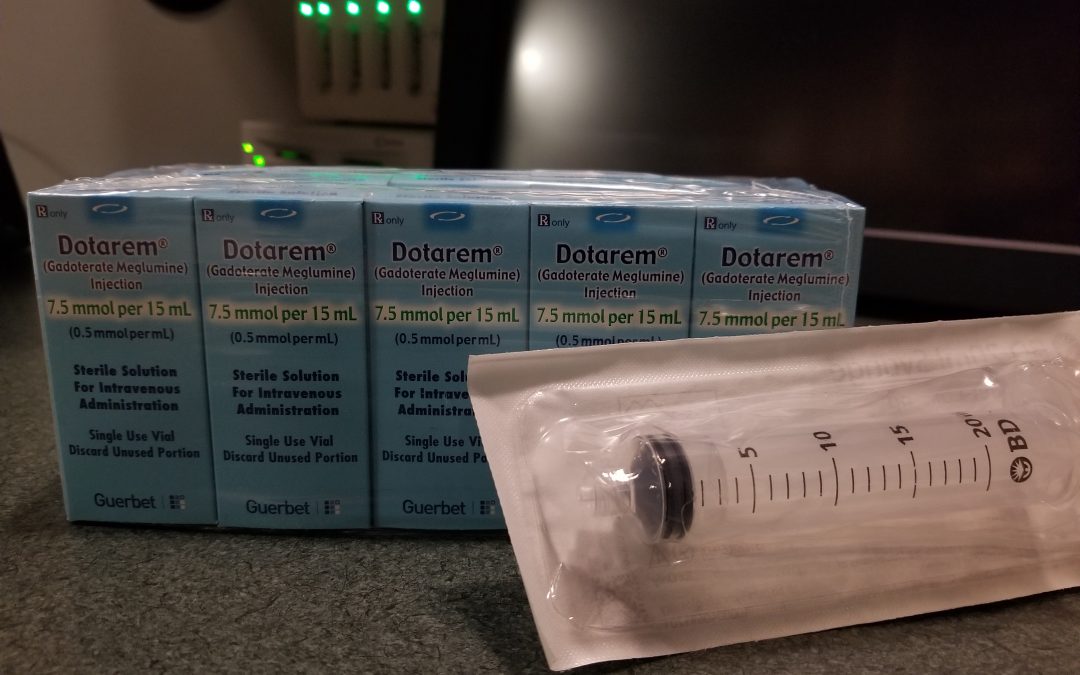At Busch Center, many of our scans and screenings are done with noneedles, contrast dye, or radiation for a more comfortable patient experience. In some cases, however, our magnetic resonance imaging (MRI) scans require us to use contrast agents to get a more robust view to see if (and where) cancer is located in the body.
In the cases where contrast dye is necessary, we opt to use Dotarem because it’s the best, safest, most stable, and most accurate contrast agent available. In both clinical trials and real-world settings, Dotarem helped radiologists do a better job spotting abnormalities, including the smallest grouping(s) of cancer cells. And we’ve seen firsthand that early diagnosis leads to better outcomes.
Gadolinium contrast is a dye that’s injected during MRI scans, allowing radiologists to detect and evaluate disease, including cancer. Over the last three decades, gadolinium contrast injections have successfully been used in hundreds of millions of patients. It’s safe, not radioactive and is different (and better) than the contrast agents used for a CT scan.
The U.S. Food and Drug Administration has approved Dotarem as safe for use in MRI scans. However, patients with severe kidney disease or gadolinium contrast allergy should consult with their radiologist before receiving gadolinium contrast.
If the Busch Center team recommends your MRI to be done with gadolinium contrast, please know that they’ve carefully reviewed your specific circumstances, symptoms, and health history and agree that an MRI with contrast dye is beneficial.
The benefits of Dotarem include:
- It’s been proven to be a safer option as compared to other brands of contrast dye.
- It helps Dr. Busch accurately locate and assess abnormalities during an MRI, including the smallest grouping(s) of cancer.
- It’s safe, is not radioactive and is different (and better) than the contrast dye used for a CT scan.
- The side effects are infrequent and typically minimal. Dr. Busch will discuss your full medical history to determine whether this approach is appropriate for you.
- Almost all Dotarem is removed from patients’ bodies via their urine within 24 hours, which is less time as compared to other contrast agents.
At Busch Center, we provide compassionate, personalized care for our patients. We ensure that each patient is fully informed about their options, and we recommend next steps that are best suited to each patient’s specific circumstances. If we do need to proceed with an MRI using contrast dye, please rest assured that we use the safest product in the marketplace.
If you have questions about Dotarem or want to schedule an appointment for one of our innovative, best-in-class screenings, please Contact Us.

